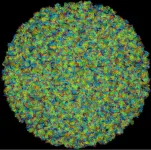(Press-News.org) Younger workers are struggling with feelings of loneliness and a lack of appreciation at work and tend to feel more comfortable working with people their own age, according to a survey by the American Psychological Association.
The 2024 Work in America survey, conducted online by The Harris Poll of more than 2,000 working U.S. adults, found that three in 10 U.S. workers reported that people in their organization who are not close to their age do not see the value in their ideas (32%). That number was significantly higher for workers aged 18-25 (48%) than for workers aged 65 and older (16%). Workers aged 18-25 and 26-43 were also significantly more likely than workers aged 44-57, 58-64 and 65+ to say that they feel more comfortable working with people their own age than with other age groups (62% and 57% vs. 42%, 38% and 27%).
While most working adults reported that they appreciate the opportunity to work with people of different ages (92%) and say that having colleagues from a range of age groups is an advantage for their workplace (87%), a quarter said that they are worried about job security because of their age. And nearly three in 10 U.S. workers (29%) said that they feel self-conscious about their age at work, including 43% of workers aged 18-25.
There are signs that younger workers may have difficulty connecting with their coworkers on a personal level as well; nearly half (45%) of workers aged 18-25 said they feel lonely when they are working, significantly more than workers aged 26-43 (33%), 44-57 (22%), 58-64 (15%) and 65+ (14%). They are also more likely than older workers to say they typically feel tense or stressed out during their workday (48% aged 18-25, 51% aged 26-43, and 42% aged 44-57 vs. 30% aged 58-64 and 17% aged 65+).
“With more workers retiring later in life, the demographics of the workplace are changing and younger workers seem to be having the hardest time adjusting. At the same time, with increased remote work and the use of new technologies like AI, younger and older workers alike are facing a paradigm shift around where and how we work,” said Arthur C. Evans Jr., PhD, APA’s chief executive officer. “To remain competitive, employers should invest in strategies that support their workers’ well-being and mental health to help them navigate these new norms and evolving professional landscape.”
Overall, a third of U.S. workers said they do not have enough control over when, where and how they do their work. One in three workers (33%) also said they are not working in their preferred location, be it remote, in person or a hybrid of the two. According to the survey, 59% of U.S. workers reported currently working all in person, 24% reported being hybrid and 17% reported working completely remotely. However, only 38% of workers reported they would prefer to work all in person, compared with 34% who reported preferring to work hybrid and 28% who reported preferring to work remotely.
Other key findings:
The percentage of workers who reported that their employer offers four-day workweeks was significantly higher in 2024 than the previous two years (14% in 2022, 17% in 2023 and 22% in 2024). And two-thirds (67%) said they believe the four-day workweek will become standard in their lifetime.
Employees’ use of AI is outpacing employer guidance, with more than one-third of workers (35%) who reported using AI monthly or more often to assist with their work. However, only 18% reported knowing that their employer has an official policy about acceptable uses of AI. Half of workers said their employer has no such policy, and close to one-third (32%) were unsure.
A majority (67%) of workers reported experiencing at least one outcome often associated with workplace burnout in the last month, such as lack of interest, motivation, or low energy, feeling lonely or isolated and a lack of effort at work.
What also stood out was that workers who feel comfortable expressing themselves or raising difficult issues without fear of negative consequences – what psychologists call “psychological safety” – tend to report better experiences at work. Workers who experience higher levels of psychological safety are more likely than workers experiencing lower levels of psychological safety to say they feel like they belong (95% vs. 69%) and that they feel comfortable being themselves in the workplace (95% vs. 75%). They were also 10 times less likely to say their workplace is very or somewhat toxic than workers who experience lower levels of psychological safety (3% vs. 30%).
The poll found that people with disabilities reported experiencing a lack of psychological safety at work at an alarming rate, which could be linked to the negative impacts of ableism or unequal access to opportunities due to bias. Two-thirds of workers with a cognitive, emotional, learning or mental disability and a similar number of workers with a physical disability (63%) reported experiencing lower levels of psychological safety, compared with 45% of workers who did not report having a disability.
Workers with disabilities were more likely to report concerns about their workplaces. Less than half (48%) of individuals living with a cognitive, emotional, learning or mental disability described their company’s culture as one that respects time off, compared with 63% of those not living with a disability. And 57% of workers with physical disabilities reported concern that AI may make some or all of their job duties obsolete in the near future, compared with 37% of workers who did not report having a disability.
“Our survey findings underscore the need for employers to create psychologically safe work environments for their employees,” Evans said. “We know from research that psychological safety not only enhances individual employee well-being but strengthens the organization by fostering a culture of creativity, innovation and effective teamwork, which ultimately helps to improve the bottom line.”
For more information from the latest Work in America survey, see the “2024 Work in America: Psychological Safety in the Changing Workplace” report.
Methodology
The research was conducted online in the United States by The Harris Poll on behalf of the American Psychological Association among 2,027 employed adults. The survey was conducted March 25-April 3, 2024. Data are weighted where necessary by age by gender, race/ethnicity, region, education, marital status, household size, work status, household income, and smoking status to bring them in line with their actual proportions in the population. A full methodology is available.
END
APA poll finds younger workers feel stressed, lonely and undervalued
Nearly one-third of U.S. workers prefer working with people their own age
2024-06-13
ELSE PRESS RELEASES FROM THIS DATE:
Shedding light on the state of genetic counseling for hereditary transthyretin-related amyloidosis
2024-06-13
Early detection and treatment of hereditary transthyretin-related amyloidosis via genetic counseling are crucial. Yet, not all at-risk individuals seek genetic counseling, and management for presymptomatic carriers remains unclear. To tackle these knowledge gaps, a research team from Japan conducted a retrospective study on over 200 people who sought genetic counseling at a medical center, shedding light on the current advantages and limitations of current practices.
Hereditary transthyretin-related amyloidosis (AATRv amyloidosis) is a rare inherited ...
Trametinib shows promise for children with relapsed or refractory JMML
2024-06-13
Bottom Line: The MEK inhibitor trametinib (Mekinist) was an effective treatment for pediatric patients with relapsed or refractory juvenile myelomonocytic leukemia (JMML) enrolled in a phase II clinical trial, with seven of 10 patients alive after a median of two years.
Journal in Which the Study was Published: Cancer Discovery, a journal of the American Association for Cancer Research (AACR)
Authors: The senior author is Mignon Loh, MD, who is the director of the Ben Towne Center for Childhood Cancer Research and the head of the Division of Pediatric Hematology, Oncology, Bone ...
New way to spot beetle-killed spruce can help forest, wildfire managers
2024-06-13
A new machine-learning system developed at the University of Alaska Fairbanks can automatically produce detailed maps from satellite data to show locations of likely beetle-killed spruce trees in Alaska, even in forests of low and moderate infestation where identification is otherwise difficult.
The automated process can help forestry and wildfire managers in their decisions. That’s critical as the beetle infestation spreads.
The Alaska Division of Forestry and Fire Protection calls the spruce beetle “the most damaging ...
New study reveals combined use of Donepezil and Memantine increases the probability of five-year survival of Alzheimer’s disease patients
2024-06-13
Alzheimer's disease is the world’s most common neurodegenerative disease, affecting more than 50 million people globally. Alzheimer’s disease is also among the most fatal, landing as one of the top five causes of death worldwide. However, most currently available treatments are limited to alleviating the disease’s symptoms.
Now, a new study led by Chapman University researchers has explored the efficacy of using two existing Alzheimer’s disease drugs simultaneously to reduce mortality. It is one of the largest and ...
Number of over 65s with type 1 diabetes has almost tripled in 30 years
2024-06-13
The number of people aged 65 and older with type 1 diabetes increased from 1.3 million in 1990 to 3.7 million in 2019, while death rates fell 25% from 4.7 per 100,000 population in 1990 to 3.5 in 2019, finds an analysis of data from over 200 countries and regions in The BMJ today.
Overall, the results show that more people with type 1 diabetes are living longer. However, death rates fell 13 times faster in high income countries compared with low and middle income countries, indicating that substantial ...
Brain regions that bias the brain’s response to pleasure in bipolar disorder identified
2024-06-13
Momentary shifts in mood, even those lasting just a matter of seconds, profoundly alter the brain’s response to pleasurable experiences in people with bipolar disorder, finds a new study by UCL researchers.
Previous research shows that mood can make us experience events in more positive or negative light – irrespective of having bipolar disorder. When we are in a good mood, we are drawn to viewing things more favourably – causing the good mood to rollover and gain momentum.
Equally, when we are upset we get drawn into perceiving bad outcomes as even worse, causing us to remain upset or get even more upset.
This “momentum” in mood can bias how we perceive events ...
Researchers in US, Ukraine simulate cell activity at ‘breathtaking’ timescales
2024-06-12
LAWRENCE — A partnership between scientists at the University of Kansas and collaborators in Europe, including war-torn Ukraine, will result in computer models of biological cells likely to hasten health breakthroughs by simulating molecular interactions inside cells with near experimental accuracy at vastly longer timescales than similar efforts.
The research is supported by the National Science Foundation’s IMPRESS-U (International Multilateral Partnerships for Resilient Education and Science System in Ukraine) program that aims to “support excellence in science and engineering research, education, and innovation through international collaboration and ...
NSF CAREER grant to investigate design of fluorescent protein sensors with computer simulations that may aid human health and disease
2024-06-12
DETROIT — Alice Walker, Ph.D., assistant professor of chemistry in the College of Liberal Arts and Sciences at Wayne State University, received a Faculty Early Career Development (CAREER) award from the National Science Foundation to fund her research on applying computational chemistry to the understanding and rational design of new fluorescent protein (FP) sensors.
“A sensor, chemically speaking, is a molecule that turns on or off in response to certain stimuli,” said Walker. “Proteins are good sensors because they have a florescent element; they essentially glow in the dark in response to when it touches something. ...
Study shows politicians deny misdeeds because we want to believe them
2024-06-12
Why do politicians lie and deny when they are caught up in political scandal?
According to a newly published study led by a University of Nebraska–Lincoln political scientist, the answer may be that their supporters prefer a less-than-credible denial to losing political power and in-group status because of a discredited standard-bearer.
“The driving question of our research is whether people are actually incentivizing politicians to deny wrongdoing and escape accountability,” said Pierce Ekstrom, assistant professor of political science at Nebraska.
“Certainly, there’s a very strong norm ...
Case study reveals important new details about rare second cancers related to CAR-T therapy
2024-06-12
WASHINGTON – A new detailed analysis of a patient’s second cancer after receiving CAR-T therapy for the initial cancer provides rare but important insights intended to offer helpful guidance for oncologists and pathologists about the clinical presentation and pathologic features involved in a CAR-T related second cancer.
The finding is reported June 13, 2024, in the New England Journal of Medicine.
CAR-T therapy is described by many as a new and promising treatment for blood cancers. CAR-T therapy is made from a patient’s ...
LAST 30 PRESS RELEASES:
E-waste chemicals are appearing in dolphins and porpoises
Researchers warn: opioids aren’t effective for many acute pain conditions
Largest image of its kind shows hidden chemistry at the heart of the Milky Way
JBNU researchers review advances in pyrochlore oxide-based dielectric energy storage technology
Novel cellular phenomenon reveals how immune cells extract nuclear DNA from dying cells
Printable enzyme ink powers next-generation wearable biosensors
6 in 10 US women projected to have at least one type of cardiovascular disease by 2050
People’s gut bacteria worse in areas with higher social deprivation
Unique analysis shows air-con heat relief significantly worsens climate change
Keto diet may restore exercise benefits in people with high blood sugar
Manchester researchers challenge misleading language around plastic waste solutions
Vessel traffic alters behavior, stress and population trends of marine megafauna
Your car’s tire sensors could be used to track you
Research confirms that ocean warming causes an annual decline in fish biomass of up to 19.8%
Local water supply crucial to success of hydrogen initiative in Europe
New blood test score detects hidden alcohol-related liver disease
High risk of readmission and death among heart failure patients
Code for Earth launches 2026 climate and weather data challenges
Three women named Britain’s Brightest Young Scientists, each winning ‘unrestricted’ £100,000 Blavatnik Awards prize
Have abortion-related laws affected broader access to maternal health care?
Do muscles remember being weak?
Do certain circulating small non-coding RNAs affect longevity?
How well are international guidelines followed for certain medications for high-risk pregnancies?
New blood test signals who is most likely to live longer, study finds
Global gaps in use of two life-saving antenatal treatments for premature babies, reveals worldwide analysis
Bug beats: caterpillars use complex rhythms to communicate with ants
High-risk patients account for 80% of post-surgery deaths
Celebrity dolphin of Venice doesn’t need special protection – except from humans
Tulane study reveals key differences in long-term brain effects of COVID-19 and flu
The long standing commercialization challenge of lithium batteries, often called the dream battery, has been solved.
[Press-News.org] APA poll finds younger workers feel stressed, lonely and undervaluedNearly one-third of U.S. workers prefer working with people their own age



